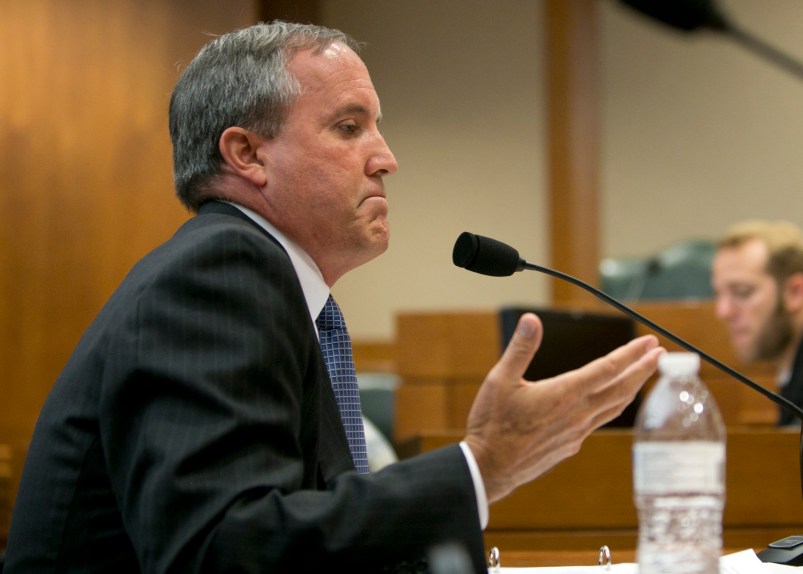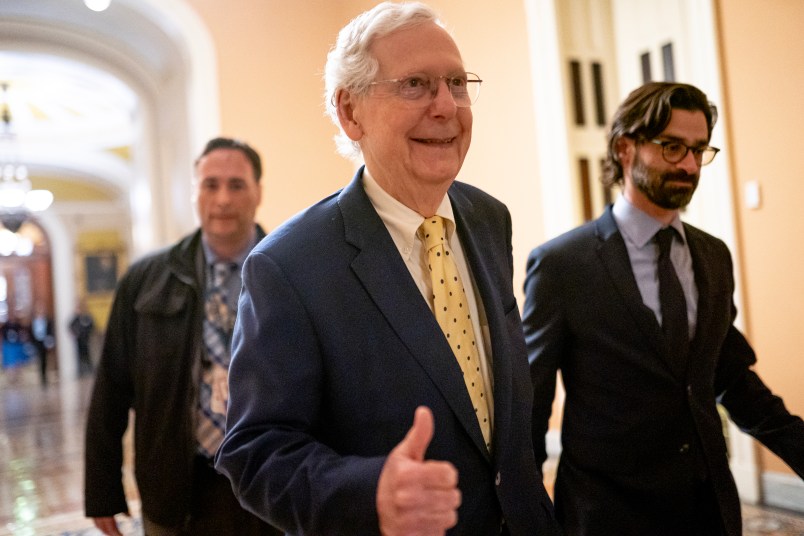As the State of the Union Address and the first partisan blows of the 2014 election cycle approach, there’s a familiar character missing from the political state: the Deficit Boogeyman. With federal budget deficits plunging and the debt-to-GDP ratio stabilizing, public concern over deficits-and-debts is gradually abating despite the massive investments made by deficit hawks in creating an emergency atmosphere conducive to “grand bargains” involving tax increases and curbs in spending on Social Security and Medicare. With Republicans refusing to consider any real revenue measures, and the two parties managing to cobble together essential spending and (we can hope) debt limit legislation, interest in big budget deals, made bipartisan by the president for the last two years, has now all but vanished.
Yes, the president will still release his FY 2015 budget, and yes, House Republicans will pass a budget resolution, if only because they made such a big deal in the past when Senate Democrats failed to do so. But both sides, secure in an appropriations deal that keeps the federal government operating for two years, will likely be going through the motions. And with Democrats having apparently settled on jobs, income inequality and social issues as election-year themes, Republicans believe attacking Obamacare is all they need to do, that Ol’ Devil Deficit may not raise his two-horned head much before Election Day.
This will be a relief for many Democrats, liberating them as it does from the prospect of supporting Social Security and Medicare cuts they don’t want in exchange for tax increases they fear to embrace and probably can’t get anyway.
But it creates a bit of a problem for Republicans. It’s not as though they will lose interest in “entitlement reform” or food stamp levels or Medicaid spending or claims about the ruinous fiscal and moral costs associated with Obamacare. Most remain publicly committed to measures (such as the 2012 favorite, the “Cut, Cap, Balance” proposal that would permanently reduce federal spending and enshrine spending limits in the Constitution) aimed at breaking up “the welfare state” and undermining the New Deal and Great Society safety net programs. Nearly all congressional Republicans have voted for one or more versions of the Ryan Budget, and there will probably be another iteration this year with big cuts in low-income programs, a Medicaid block grant, transformation of Medicare into a private insurance “premium support” system and another round of tax cuts — all, of course, in addition to the repeal of the Affordable Care Act.
But without the “deficit emergency” as a rationale, proponents of such measures are going to have to argue for them more frankly as ends in themselves, despite strongly adverse public opinion. And well they should, since conservatives have been promoting pretty much the same “reform” agenda in good times and bad.
Absent the cover of deficit reduction and all the associated rhetoric of generational equity and phony family budget analogies like “belt-tightening” and chopping up the credit cards, Republicans will no longer be able to argue for a significantly reduced set of government safety-net assurances and everyday investments as a sad but painful necessity. So they may well be forced to choose between a return to Bush-era indifference to deficits and debt, or an admission that deficits and debt have little to do with their vision of a smaller, meaner federal government that no longer undermines the moral fiber of needy people by helping them make ends meet.
Since the idea that Democrats are deliberately bankrupting the country (and raiding the wealth of productive Americans) out of an unquenchable lust for votes and power remains close to the emotional center of GOP grass-roots sentiments, I suspect we’ll still hear about “runaway spending” and “mountains of debt,” but less as a rationale for conservative policies than as a long-term dystopic vision of liberalism’s trajectory right out of Ayn Rand’s Atlas Shrugged. If the country were running large budget surpluses, we’d hear demands for tax cuts as a “rebate” of unnecessary revenues — just as George W. Bush argued during the brief moment of balanced budgets at the end of the Clinton administration. Where Bush failed, the revisionist conservative history now holds, was in failing to follow-up with the second phase of the “starve the beast” strategy by demanding domestic spending cuts that were suddenly fiscally urgent. But in any event, the fiscal context barely matters now to Republicans seeking to reverse their great failure in 1964 to roll back the New Deal and short-circuit the Great Society. The question is whether enough voters agree to support a radical retrenchment of government without a Deficit Boogeyman to fear.
Ed Kilgore is the principal blogger for Washington Monthly’s Political Animal blog, Managing Editor of The Democratic Strategist, and a Senior Fellow at theProgressive Policy Institute. Earlier he worked for three governors and a U.S. Senator. He can be followed on Twitter at @ed_kilgore.
—
“Stock Photo: An Male Accountant At Telephone Preparing Income Taxes” on Shutterstock.









